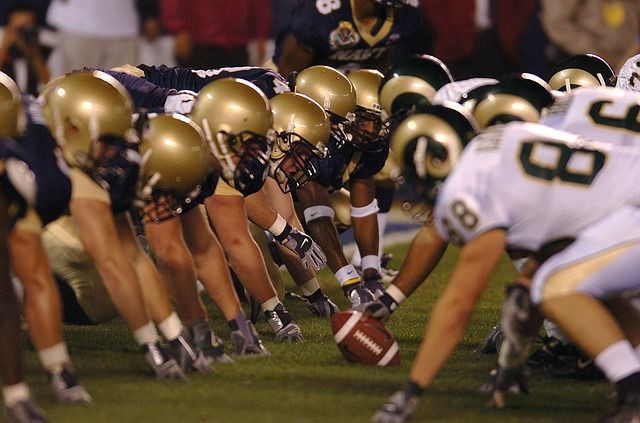Traumatic Brain Injury Subject Of Legal Fight Between NFL, Retired Players

In the most dramatic contest yet in this year's NFL off-season, attorneys for the league faced off Tuesday against attorneys for the NFL Players Association, representing 1,400 retired players suing over concussion-related injuries.
The opposing legal teams took nearly 60 minutes, the clock-time of a league game, to present arguments to a federal judge who will decide whether the case would proceed. The retired players say the league intentionally withheld scientific information about the devastating medical effects of head injuries. While the players' association wishes to go to trial, the league favors the collective bargaining venue presently used to discuss this issue.
"I will rule when I sort this whole thing out for myself,'' U.S. District Judge Anita Brody said after the hearing Tuesday. Post-hearing analysts say the decision could take several weeks, however.
Were Brody to rule for the NFL, the class-action lawsuit from the association would end, though individual players would retain the right to sue the association or their former teams. Whatever the outcome, the loser would likely send the proceedings into overtime, with an appeal. In the event Brody allows the case to proceed, lawyers would take approximately a year or so to depose witnesses and otherwise prepare.
Association attorney David Frederick said the league knowingly withheld vital health information from its players, all in the name of profit.
"The NFL spread misinformation about the neurological risks [of concussions],'' Frederick said. "The NFL was not giving truthful information, even though they knew, or should have known, that repeated impacts would cause problems.''
His counterpart, NFL attorney Paul Clement, said the collective bargaining process should be used to litigate differences, emphasizing that players only chose to pursue the league given potential problems suing individual teams or the association that represents them.
"This case is about workplace safety,'' Clement said. "The fundamental problem is that the CBA evolves over time. The one thing that is constant is these agreements put the primary role on some combination of the players themselves, the union and the clubs. You can't think of the league's responsibility in a vacuum.''
Brody offered no hints about how she might rule.
"The arguments really boil down to basic premises,'' said Andrew Brandt, a Philadelphia-based lawyer who attended the hearing. Brandt teaches sports law and negotiations at the Wharton School of the University of Pennsylvania and is a legal analyst for ESPN.
"On the league's side, it's a pre-emption case — how the players get treated, what the benefits are, how they're handled by team doctors, the grievance process and all that's incorporated into the [collective bargaining agreement]. The plaintiffs said that's not exactly true, that the [agreement] does not deal with the quote-unquote glorifying violence and the failure to disclose neurological damage.''
In court Tuesday were a half-dozen or so retired players and widows of deceased players who'd suffered fatal brain traumas.
"I'm very glad we're at least moving forward, and hopefully it won't drag out,'' said retired running back Kevin Turner, 43, who was diagnosed in 2010 with Lou Gehrig's disease. Turner said he believes he contracted the incurable disease after suffering repeated head traumas during eight seasons with the New England Patriots and Philadelphia Eagles.
The NFL continues to fund development of new helmet technology to prevent head injuries and has made a number of rule changes to limit dangerous contact, such as forbidding defense players from helmet-to-helmet hits.



























